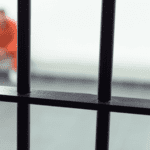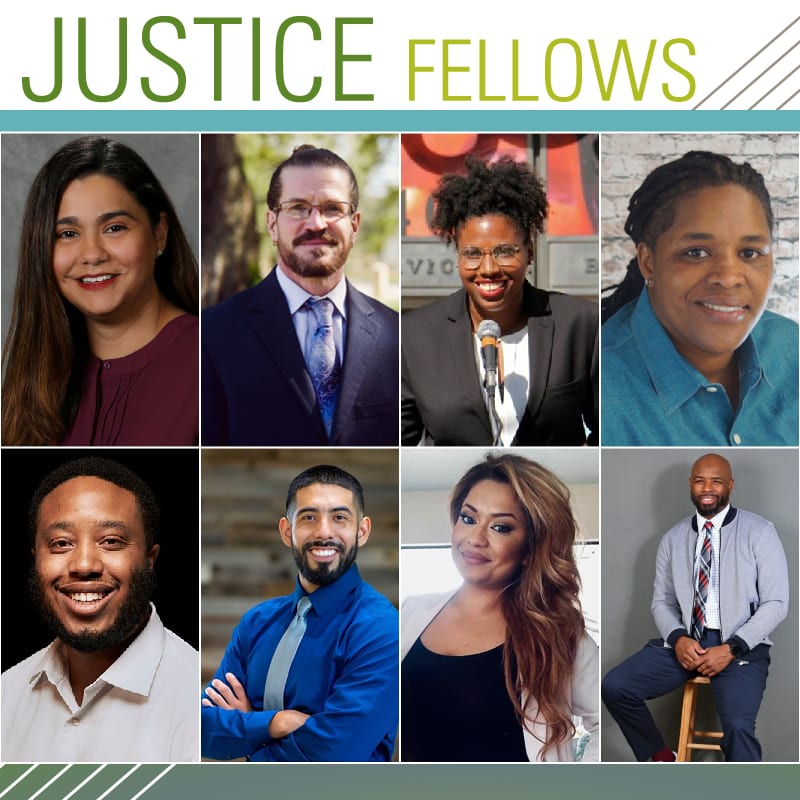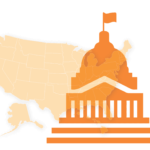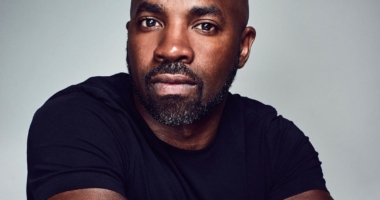Ensuring Education for Students Who Are Incarcerated
The Education Trust is committed to expanding high-quality educational opportunities to individuals who are incarcerated and otherwise impacted by the criminal justice system. Our work centers around advocating for Congress to lift the harmful ban on access to the Pell Grant for students in prison, which has been in place since the disastrous 1994 Crime Bill became law.
The evidence is clear: Higher education in prison pays healthy dividends to students in prison, to prison culture, and to the broader public. This evidence — along with the compelling voices of people whose lives have been touched by incarceration — is behind the bipartisan momentum toward lifting the ban on Pell Grants for students in prison. The Education Trust works in coalition with education, criminal justice reform, civil rights advocates, and faith-based organizations to push Congress to #LiftTheBan.
Centering the Voices of Directly Impacted People
Second Chances are Real — Let’s Make Sure More Students Get Them
In the past four years, my life has transformed for the better. I am a newlywed with a full-time job and working toward a bachelor’s degree in nonprofit management from Cleveland State University. I expect to graduate in the fall of 2019.

Higher Education Behind and Beyond Bars: A Father and Son Story
I sat with my back pressed into cold, hard wood as I stared into the big brown eyes across the table. He looks so much like me, I thought. Eight years old and full of hope — the tendrils of my incarceration have yet to grab hold of him. I asked, “Lil’ Dee, what do you want to do when you grow up?” He looked at me and said confidently, “Dad, I want to go to college. I want to get a good job and get Mommy a house.”

What Happens When Incarceration Meets Education
If the last 16.5 years behind bars has taught me anything, it’s the value of a quality education. I grew up in a house where my parents emphasized a dedicated focus on my studies, but I was too distracted to notice. Who reads books and does homework while their boys are living fast and loving it? I was never the kid who dipped his toe to test the water; I was either all in or all out.
I was all in.

A ‘Second Chance’ After 27 Years in Prison: How Criminal Justice Helped an Ex-Inmate Graduate
Maurice Smith stood anxious and alone, as the crowd of graduates around him hugged and chatted a few feet away. He was cloaked in the same black gown and donned the same black cap, but that was about all that he and the rest of Goucher College’s Class of 2019 had in common.

The Case for College Behind Bars
The United States’ criminal justice system is under increasing scrutiny from both sides of the political aisle and in popular culture. There are growing concerns about who is incarcerated, the conditions they face, how long they stay, and what happens when they get out.
As part of this push for prison reform, advocates are rightly asking how can we deliver higher education to students involved in the criminal justice system?

Justice Fellows Policy Program
Justice Fellows Policy Program
Central to our work is elevating the voices of individuals who are directly impacted by the legal system. That’s why we’ve launched the inaugural Justice Fellows Policy Program, which centers around a vibrant and nurturing community of directly impacted, formerly incarcerated individuals who have overcome the odds and attained their bachelor’s or master’s degree, created programs and organizations for the formerly incarcerated community, engaged in state legislative advocacy efforts, and more.

Coalitions and Additional Resources
Satra Taylor, The Education Trust, Written Testimony on Implementing Pell Grant Eligibility for Students Who Are Incarcerated
On June 21, 2021, Satra Taylor, manager of higher education justice initiatives at The Education Trust urged the U.S. Department of Education to act with deliberate haste to implement Pell Grants for students who are incarcerated this year, in 2021, while establishing safeguards to ensure that higher education in prison pays off for students and for taxpayers.

Profile in Education Equity: Operation Restoration
Syrita Steib-Martin and Annie Freitas cofounded Operation Restoration, a New Orleans-based organization that helps women who have been impacted by incarceration get the education and resources they need to reenter society and be successful. In this short video, they explain what educational justice means to them, what motivates them to serve this community, and why they support Second Chance Pell.

Unlock Higher Ed Coalition
Unlock Higher Ed is a broad group of stakeholders interested in policy solutions to increase educational access for individuals with criminal convictions. We believe that higher education creates pathways to financial stability and increased opportunity.

University of Utah Prison Education Project
Expanding quality higher education for currently and formerly incarcerated people: Committing to equity and protecting against exploitation.

Archive Materials
Investing in Second Chances: Lifting the Ban on Pell Access for Incarcerated Students
Congress can and should act now to repeal the ban on Pell Grant access for students who are incarcerated, providing a critical source of support for high-quality higher education in prison.

It’s Time for Congress to Act on Higher Education Reform
Fifty-four years ago, President Lyndon B. Johnson signed into law the Higher Education Act (HEA) of 1965, creating the framework for the system of higher education that students, programs, colleges, and universities operate within today. In his remarks that day, President Johnson called HEA the key that unlocks the “most important door that will ever open — the door to education.” He also said of the massive bill, “I doubt that any future Congress will ever erect a prouder monument for future generations.”

The Forgotten Children: Students Who Have an Incarcerated Parent
There are 1.5 million people in federal and state prisons and another 600,000 in local jails. More than half (54 percent) of these incarcerated adults have children under the age of 18; this amounts to 2.7 million children who have parents who are locked up.

Lift the Ban on Pell Grants for Students who are Incarcerated
The evidence is clear: Higher education in prison pays healthy dividends to students in prison, to prison culture, and to the broader public. This evidence — along with the compelling voices of people whose lives have been touched by incarceration — is behind the bipartisan momentum toward lifting the ban on Pell Grants for students in prison. The Education Trust works in coalition with education, criminal justice reform, civil rights advocates, and faith-based organizations to push Congress to #LiftTheBan.






